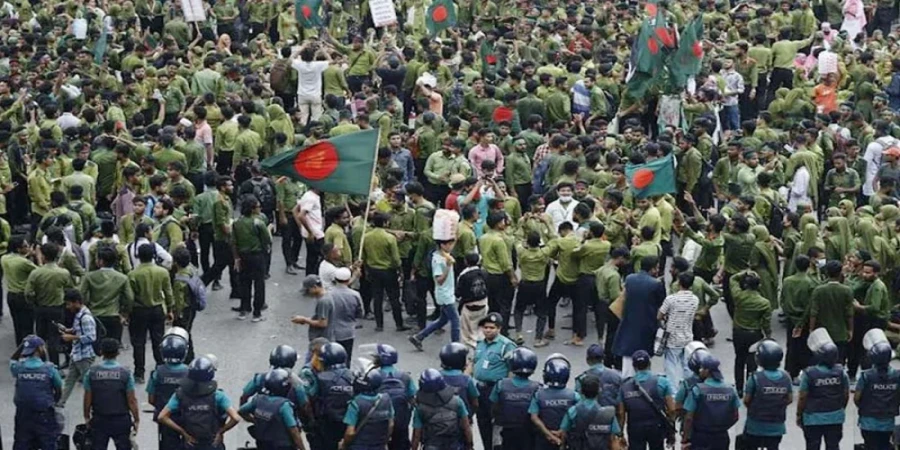
ছবি: File photo
The High Court has temporarily suspended the decision to issue appointment letters to 6,531 assistant teachers for government primary schools under the third phase of recruitment. The court issued the order on Tuesday, November 19, following concerns over the application of the quota system in the hiring process.
The bench, led by Justice Fatema Nazib and Justice Mahmudur Rahman, announced the decision after reviewing a writ petition filed against the recruitment process. The teachers’ appointments had been scheduled to begin on November 20, but the court's ruling has halted this process for the time being.
The writ petition raised objections to the use of the controversial quota system in the recruitment of teachers, prompting the court to take action. The petitioners argued that the system, which allocates a certain percentage of positions to specific groups based on criteria such as socio-economic status or ethnicity, violated constitutional principles and unfairly affected the hiring of qualified candidates.
In response to the petition, the court issued an interim order, instructing the government to refrain from issuing appointment letters to the selected candidates until further notice. The decision has led to a temporary setback in the recruitment process, which had already caused much anticipation among aspiring teachers.
Barrister Faizuddin Ahmed and Advocate Kamruluzzaman Bhuiyan represented the petitioners in court, while Deputy Attorney General Nur Mohammad Azmi appeared on behalf of the state. The legal teams presented their arguments before the court, which carefully considered the merits of the case before issuing its decision.
The recruitment process, which aimed to fill assistant teacher vacancies in primary schools across the country, had been progressing through multiple phases. The third phase of recruitment involved over 6,500 candidates who had been selected based on the government's criteria. These appointments were expected to address the long-standing shortage of teachers in government schools and improve the quality of primary education.
However, the decision to apply the quota system has been a point of contention, with many questioning its fairness and its impact on the merit-based hiring of candidates. Critics argue that the system has led to the exclusion of deserving candidates from certain groups, while others contend that it remains an essential tool for ensuring social inclusion and diversity in the workforce.
The court's order to suspend the appointments has brought attention back to the ongoing debate over the quota system and its implications for the public sector. The issue has sparked widespread discussions, particularly in the context of government recruitment processes, and has prompted calls for reform in the hiring policies.
For now, the 6,531 candidates who were poised to receive their appointment letters tomorrow will have to wait for further legal proceedings to determine the future of their recruitment. The government has yet to comment on the court's order, and it remains to be seen how the case will progress in the coming days. The outcome of this case could have significant implications for future recruitment processes in government sectors.
As the legal battle continues, stakeholders from both sides are awaiting a resolution that will either uphold or overturn the existing recruitment policies, including the use of the quota system.
repoter






